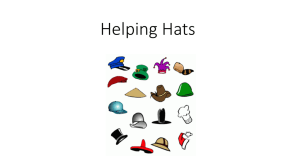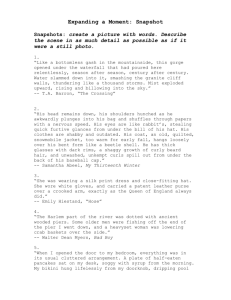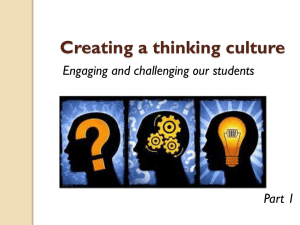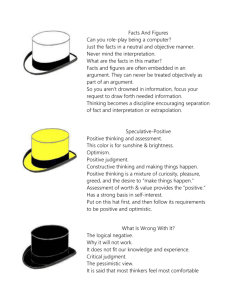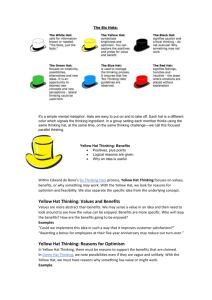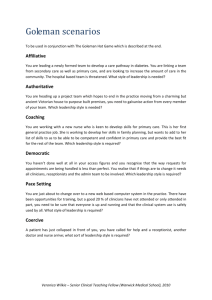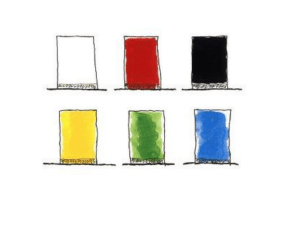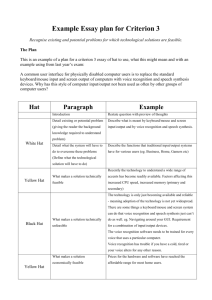Lesson on the Social Cognitive
advertisement
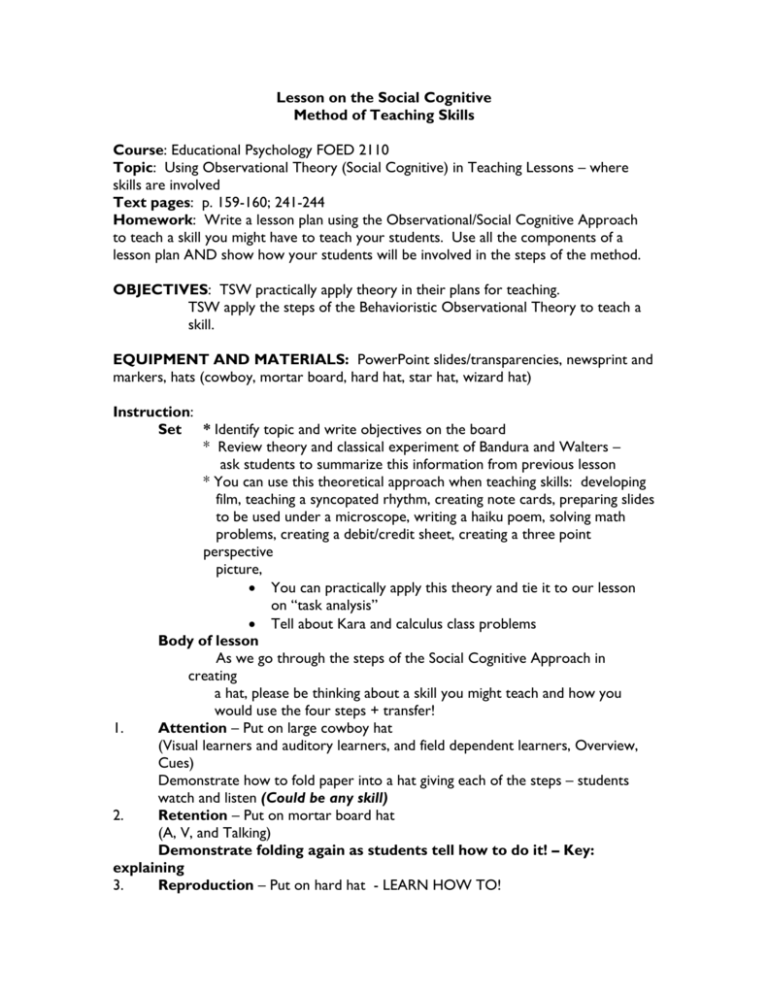
Lesson on the Social Cognitive
Method of Teaching Skills
Course: Educational Psychology FOED 2110
Topic: Using Observational Theory (Social Cognitive) in Teaching Lessons – where
skills are involved
Text pages: p. 159-160; 241-244
Homework: Write a lesson plan using the Observational/Social Cognitive Approach
to teach a skill you might have to teach your students. Use all the components of a
lesson plan AND show how your students will be involved in the steps of the method.
OBJECTIVES: TSW practically apply theory in their plans for teaching.
TSW apply the steps of the Behavioristic Observational Theory to teach a
skill.
EQUIPMENT AND MATERIALS: PowerPoint slides/transparencies, newsprint and
markers, hats (cowboy, mortar board, hard hat, star hat, wizard hat)
Instruction:
Set * Identify topic and write objectives on the board
* Review theory and classical experiment of Bandura and Walters –
ask students to summarize this information from previous lesson
* You can use this theoretical approach when teaching skills: developing
film, teaching a syncopated rhythm, creating note cards, preparing slides
to be used under a microscope, writing a haiku poem, solving math
problems, creating a debit/credit sheet, creating a three point
perspective
picture,
You can practically apply this theory and tie it to our lesson
on “task analysis”
Tell about Kara and calculus class problems
Body of lesson
As we go through the steps of the Social Cognitive Approach in
creating
a hat, please be thinking about a skill you might teach and how you
would use the four steps + transfer!
1.
Attention – Put on large cowboy hat
(Visual learners and auditory learners, and field dependent learners, Overview,
Cues)
Demonstrate how to fold paper into a hat giving each of the steps – students
watch and listen (Could be any skill)
2.
Retention – Put on mortar board hat
(A, V, and Talking)
Demonstrate folding again as students tell how to do it! – Key:
explaining
3.
Reproduction – Put on hard hat - LEARN HOW TO!
(A, V, and K learners)
Describe how to fold the hat AND students do it.
Note: Advantage of catching difficulties as they occur
4.
5.
Reinforcement - Put on star hat
(Kinesthetic learners)
Students create hats on their own; provides practice; lets teacher monitor for
errors.
Transfer – Put on wizard hat {This is NOT part of the Social Cognitive Theory
but connects with the importance of higher order thinking – Bloom’s Cognitive
Domain}
With a partner, tell how YOU can teach a specific skill using these steps – in
writing.
Monitor what the students design and make note of good examples to share.
Closure
Students share how they can apply the theory in teaching skills in their own
specialties.
Summarize the steps – get from students – Pull rabbits out of the hat for
students who respond correctly.
Reminder of homework for next class – turn in complete lesson plan showing
how to teach a skill in specialty area. Lesson plan must include all the parts of a
lesson plan AND correctly apply the Social Cognitive Theory.
Next lesson will cover Behavior Modification Theory and Techniques –
use your Schedule for Reading.
BACK UP PLAN
If extra time is available Contrast the Social Cognitive approach with the
typical demonstration approach by having the students fold hats into boat
and then a t-shirt without the benefit of the Soc. Cogn. application.
REFLECTION
How well did students accomplish the goals?
What needs to be altered or changed?
Does any reteaching need to occur?
What individuals need extra assistance on this technique?
